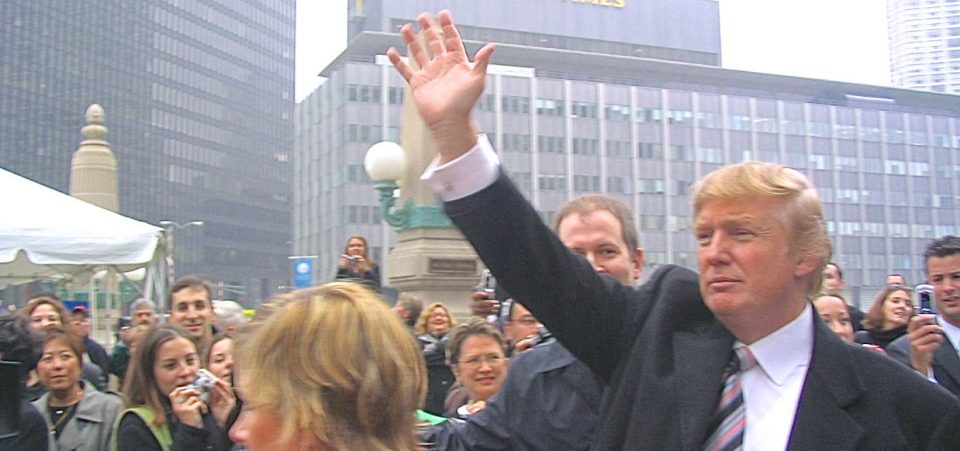Trump Liquidates Stock Portfolio
Donald Trump has been warning that stocks are overvalued for well over a year. And now, the bellicose billionaire president-elect has put his money where his mouth is. Trump sold off his entire $91.0-million-plus stock portfolio back in June. (Source: “Trump sold all shares in companies in June, spokesman says,” The Washington Post, December 6, 2016.)
Donald Trump’s May 2016 Federal Election Commission filing showed that his stock holdings were, for the most part, pretty conservative. This may give even more credence to his fear that the markets are overvalued.
The recent announcement may also be his way of thumbing his nose at Wall Street, who have been calling him a hypocrite for saying the markets were overvalued while at the same time profiting from it.
Before he sold his holdings in June, Trump held millions of dollars worth of shares in Citigroup Inc (NYSE:C), JPMorgan Chase & Co. (NYSE:JPM), Wells Fargo & Co (NYSE:WFC), Morgan Stanley (NYSE:MS), and Goldman Sachs Group Inc (NYSE:GS). (Source: “Here Are Donald Trump’s Biggest Stock Market Investments,” Fortune, August 9, 2016.)
Trump’s top holdings also included Phillips 66 (NYSE:PSX) and Berkshire Hathaway (NYSE:BRK.A, BRK.B). Other conservative plays included General Electric Company (NYSE:GE), Johnson & Johnson (NYSE:JNJ), McKesson Corporation (NYSE:MCK), and PepsiCo, Inc. (NYSE:PEP). (Source: Ibid.)
While Trump said he wanted tech companies to keep jobs in America, he wasn’t afraid to bet on them either. He had major holdings in Alphabet Inc (NASDAQ:GOOG) (also known as Google), Microsoft Corporation (NASDAQ:MSFT), and Apple Inc. (NASDAQ:AAPL).
Most Reliable Ratio on Valuations Backs Trump Up
Did Trump sell his stock portfolio because he believes the stock market is seriously overvalued and ready to crash, or because his holdings could be perceived as a conflict of interest?
On the first point, Trump has been very vocal. “We are in a big fat ugly bubble, and we better be careful,” he said during the first presidential debate. He told The Hill back in October 2015 that stocks were in a bubble. (Source: “Trump: Economic bubble about to burst,” The Hill, October 14, 2015.)
And in April of this year, said he didn’t have much faith in the stock market and that it was a terrible time to invest because a ‘yuge recession is coming. (Source: “In a revealing interview, Trump predicts a ‘massive recession’ but intends to eliminate the national debt in 8 years,” The Washington Post, April 2, 2016.)
The Case Shiller CAPE (cyclically adjusted P/E) ratio currently stands at 27.36 times average earnings. The 100-year average is around 16. This means stocks are overvalued by 71%! The ratio has only been higher three times, in 1929, 1999, and 2007. Each time it was followed by a crash in excess of 50%. (Source: “Online Data Robert Shiller,” Yale University, last accessed December 7, 2016.)
On the second point, Trump may have sold off his shares in June because he needed to raise much-needed funds, since he claimed he would be personally supporting his own campaign. He might also have sold his stock portfolio to remove any conflict of interest.
Again, Trump owned major holdings in five of the country’s biggest banks. In the run-up to the election Trump said he would dismantle all of the sweeping financial reforms President Obama put in place because they were harming the economy.
One of the most dangerous reforms being the 2010 regulatory law Dodd-Frank. He called it a “disaster” and said he would “absolutely” repeal it. The regulations under Dodd-Frank were so restrictive, he said, “The bankers are petrified of the regulators. And the problem is that the banks aren’t loaning money to people who will create jobs. And that has to stop.” (Source: The Hill, op cit.)
It’s pretty tough to come down on a reform that impacts the major banks when you’re a major shareholder. It would also be in bad taste to slam Boeing Co’s (NYSE:BA) $4.0-billion Air Force One upgrade when you’re a shareholder.
Selling Stock Portfolio a Move in the Right Direction
Interestingly, Donald Trump told Fox Business News back in August that, while he did invest, he got out, “and it was actually very good timing.” It’s just that no one believed him at the time. (Source: “Why Trump ‘Got Out’ of the Stock Market,” FOXBusiness, August 2, 2016.)
Whether Trump sold his holdings because the markets are (indeed) overvalued, because he needed to raise cash, or because he had to recuse himself for ethical reasons, in the end, it doesn’t really matter. The fact is, he has divested himself of ownership in companies that could benefit or be harmed by his policies.
It’s certainly a good step in the right direction for a person whom a lot of people thought was morally rudderless.






